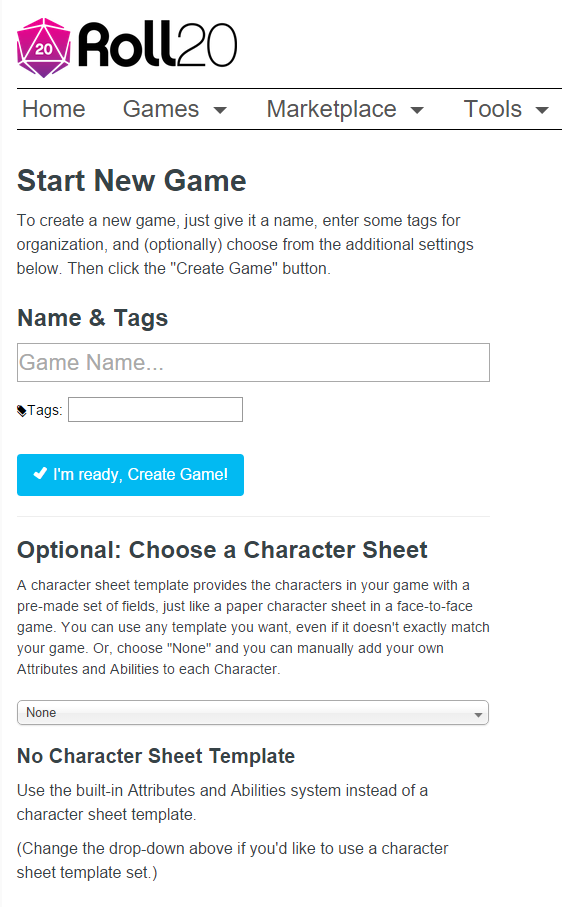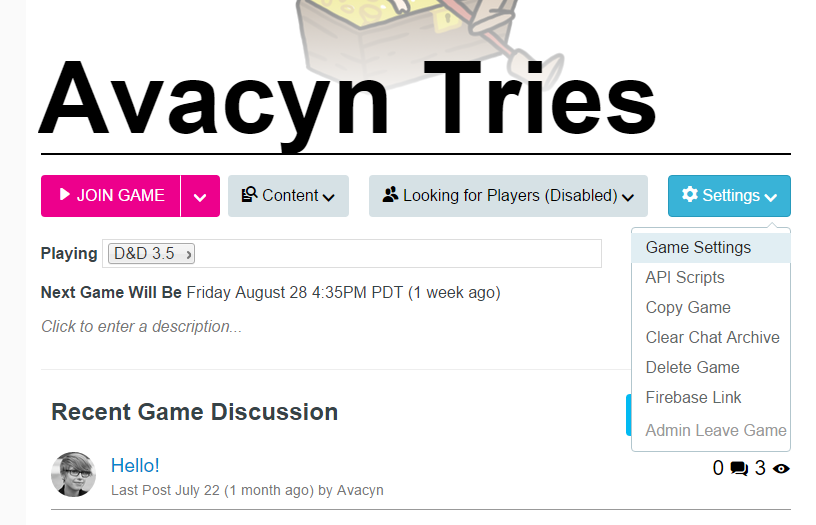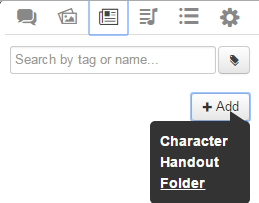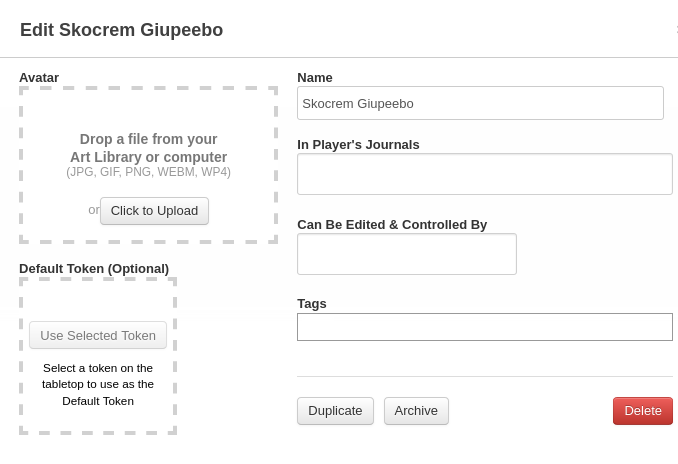Adding Character Sheet
From Roll20 Wiki
Page Updated: 2021-09-21 |
Contents |
Choosing a Character Sheet Template for your Campaign
Main Page: Game ManagementStarting a New Game
When starting a new game, you(as the game's Creator have the option to choose the Character Sheet Template you want to use from the handy drop-down available on the New Game creation screen. The Sheet Template can be changed after game creation form the Game Settings-page. If you're making a Game that's a copy based on an existing Game, the copy will keep all relevant sheet template information to match the original. Finally, you need to click the (I'm Ready, Create Game) button to save.
For an Existing Game
To change or add a Character Sheet, the Creator of the game should visit the Game Settings page.
This page is accessed from the Settings dropdown on the Game Details page. Links to the Game Details pages of games that you belong to can be found on the My Games page.
In the Character Sheet Template section, select a template from the dropdown.Custom to enter custom sheet code. Finally, you need to click the (Save Changes) button found at the bottom of the screen.
| Note: You may need to remove any Attributes that you already have on your existing Characters if they conflict with the names of the attributes on the sheet template's auto-calculating values. If you are seeing weird results with rolls from the sheet, remove your attributes. |
Adding New Characters In-Game
Main Article: N Journal-tabTo add a new Character/Character Sheet for a player inside the game, a GM or the Game Creator start by going to the N Journal-tab. There you click on the + Add button and select Character from the dropdown menu. There sheets are by default hidden from the players, so you need to make them visible to players, and give them editing permissions when needed. See the Character Sheet page for more.
You can also add a character by right-clicking an existing folder in the Journal tab and selecting Add Character from the Folder Options menu. Adding new Characters or Handouts using the right-click method places them directly into the right-clicked folder.
Regardless of how you create the Character entry, Roll20 will randomly generate a placeholder for the Character entry's Name.
A Character Entry uses this icon:![]() as the default thumbnail for itself on the Journal Tab. This thumbnail icon will change if you add your own image to the Character's Portrait.
as the default thumbnail for itself on the Journal Tab. This thumbnail icon will change if you add your own image to the Character's Portrait.
Assign to player
To assign sheets to players, the GM need to open the character sheet and press the edit button, and in "In player's Journal"-section, add players that should see the character (in the N Journal, but not the full sheet).The "Can be Edited & Controlled by"-section is separate to give the right persons the rights to edit and see the full character sheet. Assigning char sheets to people works only after they have logged in the first time, but you can set some to "All Players" if they haven't joined yet and want to make it available the moment they join.
API
| This is about a Roll20 feature exclusive to Pro-subscribers (and often to players in a Game created by a Pro-subscriber). If you'd like to use this feature, consider upgrading your account. |
There are some APIs that can automate sheet creation/assignment to players:
- CharSheet -- Allow players to create their own character sheets.
- Welcome Package(Forum) -- API create and assigns character sheets to new people who join a game
- PlayerCharacters(Forum) -- Player & Character Manager. List all Player Characters divided by Player for the GM, or all assigned Characters for a Player. Add Characters for GM and Players.
Add Character from the Character Vault
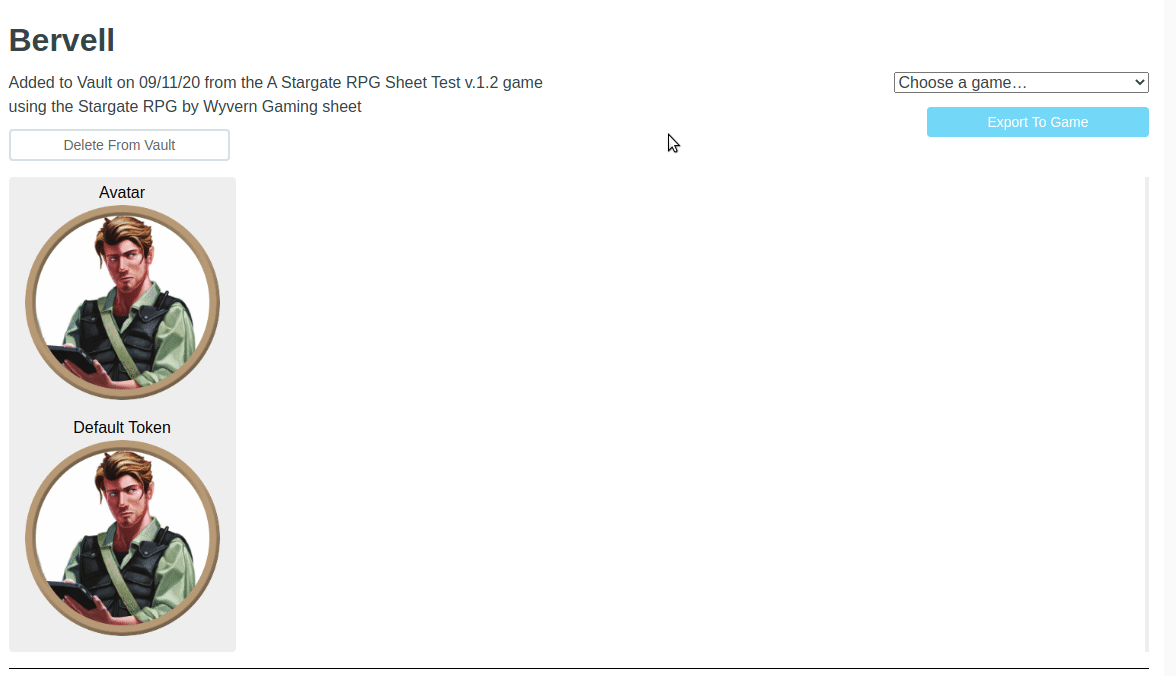
Main Article: Character Vault
If you have a character/character sheet in your Character Vault, you can from there Export a character sheet to a Game.
If you're a Player, the GM needs to manually assign you the character after you have imported it.
See Character Vault#Exporting Characters for full details when and how to do this.
See Also
- Character Vault - Importing/Exporting Character between games.
- Character Sheets - General info on how character sheets work
- Link Token How to Link Token to a Character Sheet
- Character Sheet Documentation - List of character sheets which have their own user guides, such as D&D 5E by Roll20 or Starfinder Official
- Editing or Creating Custom Character Sheets - (Pro Feature)
- Character Sheets & Compendium(Forum) Subforum
- Game Management
- Game Settings includes default settings for character sheets





